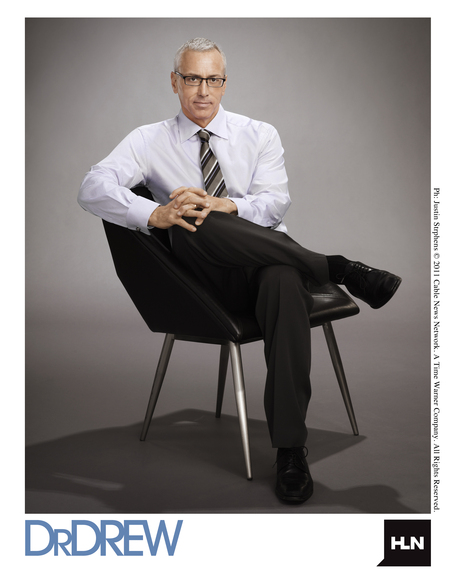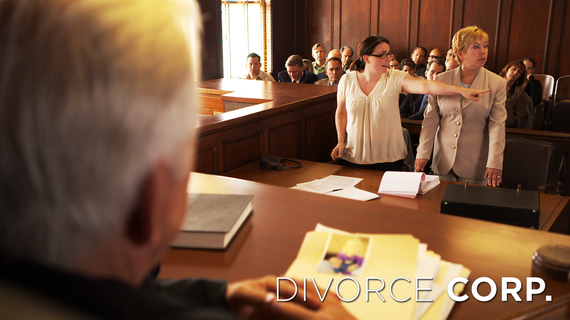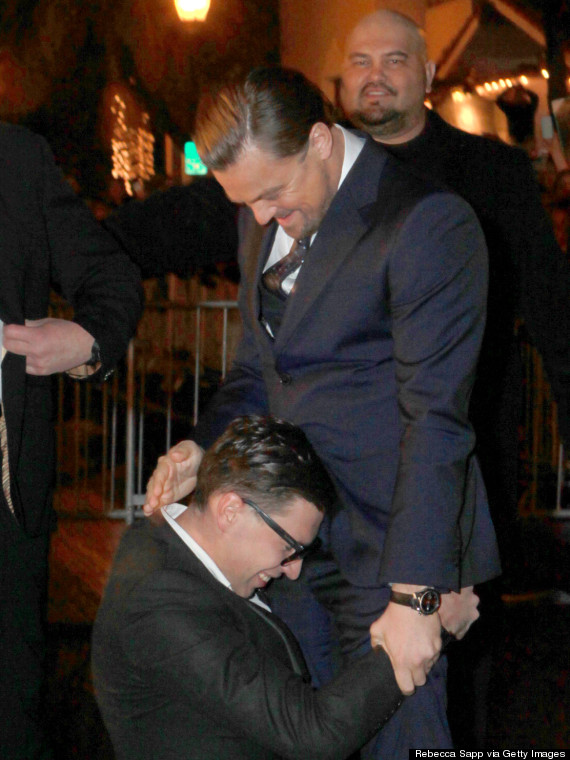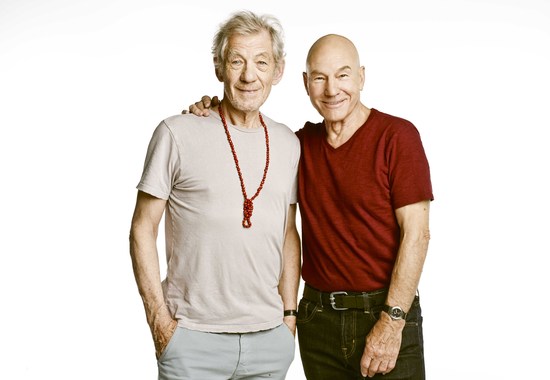Why didn't a cable or broadcast network make this show? It's certainly better than a lot of the one-hour programs the broadcast networks have debuted in the last year or two, and the first hour of Carter's new project as good as or better than a fair number of cable pilots.
Here's the catch: So far, the first hour is all we get.
The pilot for "The After," which is about 54 minutes long, was made available today by Amazon along with nine other pilots (five are kids' shows, the rest are a mix of comedy and drama). I've also seen another of today's crop, the half-hour show "Transparent," which is from veteran TV writer Jill Soloway. It's very different from "The After" -- it's more low-key, bittersweet and mildly comedic -- but it's also worth a look.
Of all the Amazon pilots I've seen, in this year's crop or in a previous batch, "The After" is the only one that hooked me from the first few minutes. If you're looking for a combination genre piece/thriller that executes the basics reliably well, Carter's new show may be right up your alley.
That said, the show isn't perfect, but the bigger issue is the awkwardness of Amazon's model. I'm not saying new models are inherently bad -- I like it when people dink around with the normal way of doing things in the TV business, but only when that dinking has a purpose. I'm not sure I see the upside to flinging a bunch of stuff at the wall and seeing what sticks. If a lot of people like "The After," when will more episodes get made? Will it dissipate any potential goodwill by not re-emerging from Amazon's vaults for months -- or longer? Why not just, you know, make a show you believe in?
As I discussed in a TV roundtable today with myself and Dan Fienberg and Alan Sepinwall of Hitfix, though I'm glad it's in the mix, I still don't quite regard Amazon as a major player at the table, in part because it seems unwilling to commit. A big part of the reason that Netflix ordered two seasons of "House of Cards" before anyone had seen any of it is because signing the check for a very pricey David Fincher-Kevin Spacey project gets you noticed. Surely all content creators -- especially one swimming in a sea of physical and virtual content -- want what they've made to get noticed, right?
All Amazon seems to have done thus far is make people who don't work in the entertainment industry realize that making pilots is a dicey, challenging and sometimes dull proposition. This isn't where the showbiz glamour is, it's where you find the stench of flop sweat. But hey, it's not like Amazon is asking me for advice -- though I do have some a bit further down in this post.
As for the content of "The After," I'm hesitant to say much, because a certain amount of the enjoyment of watching the pilot will probably come from not knowing a much about it. I can say that it's an ensemble piece set in the present day, and its characters are put in a lot of danger at various points in the first hour. It also ends on a cliffhanger that I'm not sure about, to be honest, though I'd certainly be willing to watch more. But how much more?
As part of its TV-making process, Amazon has invited people to weigh in on its shows, offering the usual Amazon reviews and ratings. Personally, I'd give "The After" four out of five stars, and I'd also give Amazon this free advice: You might not want to make 22 episodes of this.
I'd be willing to be wrong, but I wonder if "The After" even needs 13 hours to tell its tale. Maybe it'd work best as a movie or two or a miniseries? I don't know where Carter's going with this, and again, perhaps the characters and world he's building could be interesting for a while, but I feel fairly certain that "The After" does not need multiple seasons. (Feel free to leave your thoughts about the pilot in the comment area, which we'll designate a spoiler zone.)
In any event, one of the most welcome developments of the last couple of years has been the re-emergence of the TV movie and miniseries. Aside from prestigious star vehicles on HBO and cheap, usually forgettable stuff on networks like Lifetime and A&E, those categories have been largely moribund for the last decade or two. For a long time, the most profitable TV models depended on making a lot of episodes of a particular show and then selling those shows in traditional syndication. It wasn't the only way to make money, but when it worked, it often made spectacular amounts of money for everyone involved.
The emergence of scads of new platforms and windows has messed with that model a lot, and this is a very good thing. Now that media companies have many different ways to monetize their products (look at me using fancy business words!), they can get off that treadmill. Those who make TV can play around with what kinds of shows they make, they can experiment with how long the shows last, they can be circumspect about which shows become long-term franchises and which ones wrap up when it makes sense to for them to end. New models, networks and outlets are springing up all the time, and TV seasons are shrinking and expanding to embrace the many options before them. I loved "Top of the Lake," for instance, but a second season of that would be a disaster. Maybe that miniseries didn't make a ton of money for everyone involved, but having a buzzworthy sequence of shows -- some of which will return, some of which don't -- will burnish Sundance's brand nicely, and in the long run, will likely make reasonable dough for everyone involved.
Via "The X-Files," Chris Carter helped change television once: As I discussed with various X-Files writer/producers when the show celebrated its 20th anniversary last year, the tale of Mulder and Scully was one of a number of factors ushering in a new era for one-hour dramas.
The success of "The X-Files" helped convince TV executives that a genre piece could be a big pop-culture hit, thus opening the floodgates to "X-Files" homages like "Lost," "Fringe" and dozens of lesser imitators. Perhaps more importantly, the fact that it was character-driven was key to its success. People watched it for the scares, but they the depth of their fandom was determined by how much they cared about the people those scary things were happening to. We've seen so many shows run aground thanks to overwrought concepts and undercooked characters, but when it was good, "The X-Files" wasn't just a freaky procedural or a show with a bewildering mythology (though it too often wandered into the latter mode in its twilight years). In its first few seasons especially, it was a show that asked resonant questions about people who were memorable enough to make the whole adventure worth our time.
That's one of the things that "The After" does better than a lot of network procedurals (and some uninspired cable shows). It wisely focuses on a few characters at first, and even if you don't know much about them (and even if a number of them remain types for the duration), you get invested in at least a few of them as the story gets them into deeper and deeper trouble. Louise Monot's lead character grounds the show in scrappy seriousness, and Aldis Hodge, Sharon Lawrence and an almost unrecognizable Jamie Kennedy do fine work as well. The first hour was a judicious mix of suspense and solid storytelling, and I'd be willing to spend more time with these folks.
So here's my two cents, Amazon: You may have a keeper with "The After." Bring it back, but don't let it wear out its welcome.
Today's TV roundtable with me, as well as Alan Sepinwall and Dan Fienberg from Hitfix, is here and below.












